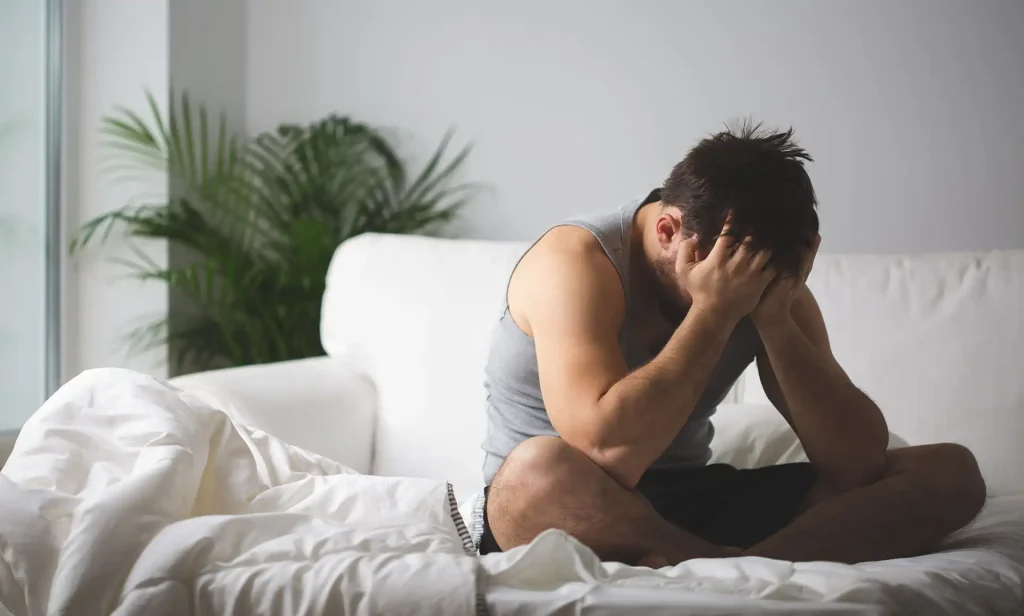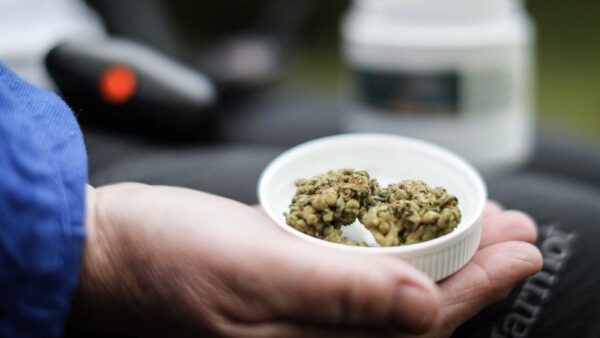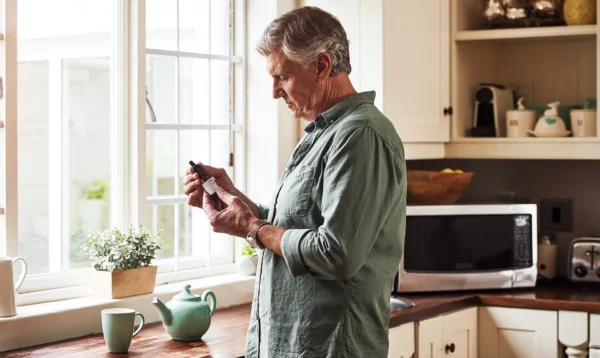Poor sleep is a common problem around the world, with an estimated 10% of people estimated to meet the criteria for insomnia disorder, whilst 30% of people live with insomnia symptoms. While various treatments exist, some individuals seek alternative therapies, with medical cannabis gaining increasing interest. But what do we really know about its effects on sleep, particularly when it comes to prescribed formulations?
A recent pilot study sheds light on how a specific oral cannabinoid product might influence sleep in individuals with insomnia.
What is Insomnia?
Insomnia disorder is a prevalent condition characterised by persistent difficulty initiating and/or maintaining sleep for three or more nights per week for at least three months. Given the importance of sleep for maintaining physical and mental well-being, insomnia is associated with significant daytime impairment as well as an increased risk of additional health complications.
A number of treatments are available for insomnia, including cognitive behavioural therapy (CBT) and pharmacological interventions. However, many individuals may find it hard to access CBT for insomnia in the UK. Many traditionally used medications for insomnia have not been approved for long-term use and can be associated with serious adverse events. Whilst there are new medications which show promise, called orexin receptor antagonists, these are not yet widely available via the NHS.
Medical Cannabis and Insomnia
Many individuals report using medical cannabis for sleep difficulties. However, rigorous clinical trials examining its effects on objective sleep measures in people with insomnia have been limited. Previous research, mainly in recreational cannabis users, has shown that cannabis, especially tetrahydrocannabinol THC, can affect rapid-eye movement (REM) sleep.
New Study: Oral Cannabinoids and Sleep Architecture
A recent pilot randomised controlled trial, published in the Journal of Sleep Research, investigated the acute (single-dose) effects of an oral medical cannabis product on sleep and next-day alertness in 20 adults diagnosed with insomnia disorder. The product contained a combination of 10mg THC and 200mg cannabidiol (CBD).
The researchers used advanced sleep monitoring techniques, including polysomnography and high-density electroencephalography (EEG), to objectively assess changes in sleep patterns and brain activity.
Participants were randomly allocated in a 1:1 ratio to either receive the THC and CBD treatment first and then placebo or placebo and then the cannabinoid.
Key Findings: Impact on Sleep Stages
The study revealed several important effects of the single oral dose of THC/CBD:
Reduced Total Sleep Time: Participants experienced a decrease in total sleep time by an average of 24.5 minutes compared to placebo.
Suppressed REM Sleep: There was a reduction in the amount of REM sleep, by an average of 33.9 minutes. The time it took to enter REM sleep also increased. REM sleep is an important stage for cognitive function and emotional processing. This finding aligns with previous research on THC and REM sleep.
Changes in Brain Activity (EEG): High-density EEG analysis showed some specific changes in brainwave activity during sleep:
- Decreased gamma activity during lighter stage 2 non-REM sleep, suggesting a reduction in cortical arousal.
- Decreased delta activity during deeper stage 3 non-REM sleep, which might indicate reduced sleep depth.
- Increased alpha and beta activity during REM sleep, pointing to heightened cortical arousal during this stage.
Next-Day Effects: No Major Impairment Observed
A key finding for many patients is the assessment of next-day function. Despite the observed changes in sleep architecture, the study found:
- No Impairment in Objective Alertness: There was no significant impact on objective measures of next-day alertness, such as the ability to stay awake during tests or reaction times.
- Slight Increase in Self-Reported Sleepiness: Participants reported a small increase in subjective sleepiness compared to placebo. However, this increase was considered mild and not clinically significant.
- No Change in Subjective Sleep Quality or Cognitive Performance: The study did not find any significant changes in how participants rated their overall sleep quality, nor did it show any impairment in cognitive performance or simulated driving ability
Safety
The researchers carefully monitored for any adverse events. No serious adverse events were reported, and no participants withdrew from the trial. A total of 85 mild, self-limiting adverse events were recorded: 55 during THC/CBD treatment (across 16 participants) and 30 during placebo treatment (across 13 participants). The most commonly reported adverse event associated with THC/CBD was dry mouth.
Important Considerations
This pilot study offers valuable insights, especially as it involved a controlled design with a regulated medical cannabis product in individuals not regularly using cannabis. However, it’s important to note some limitations:
- Single-Dose Study: This research looked at the acute effects of a single dose. The impact of repeated or long-term use of medical cannabis for insomnia needs further investigation.
- Specific Formulation: The findings are specific to the 10mg THC and 200mg CBD ratio used in this product. Different cannabinoid ratios or delivery methods may have different effects.
- Potential for Tolerance and Withdrawal: Previous research suggests that with repeated use, tolerance to THC’s REM-suppressant effects might develop. Abruptly stopping cannabis use can also lead to sleep disturbances. These aspects highlight the need for further research into long-term safety.
- Drug Interactions: It’s plausible that the high CBD-to-THC ratio in this study may have led to a stronger than expected effect due to how CBD can influence THC levels in the body.
The Future of Medical Cannabis Treatment for Insomnia
This study is a significant step in understanding how prescribed cannabinoids can affect sleep in individuals with insomnia. While a single dose of THC/CBD showed effects on sleep architecture, particularly reducing REM sleep, it did so without causing noticeable next-day impairment in objective measures. More research, especially with repeated dosing and in larger groups, is needed to understand the clinical significance of these findings fully and to guide the safe and effective use of medical cannabis for insomnia.
Disclaimer: This blog post is based on scientific research and should not be taken as medical advice. Always consult with a healthcare professional for any health concerns or before making any decisions related to your health or treatment.








